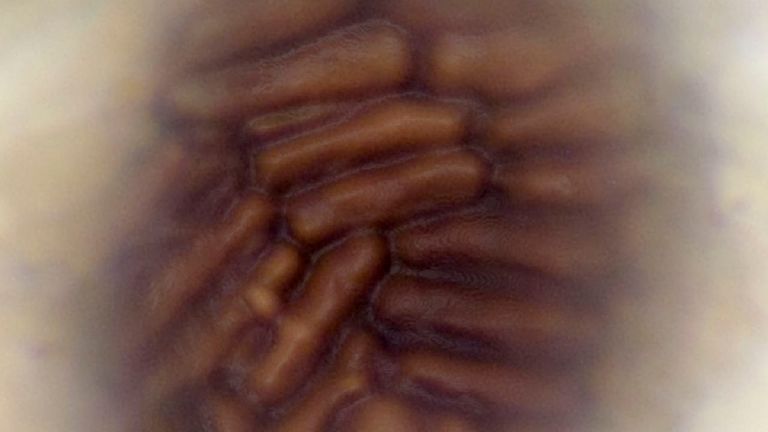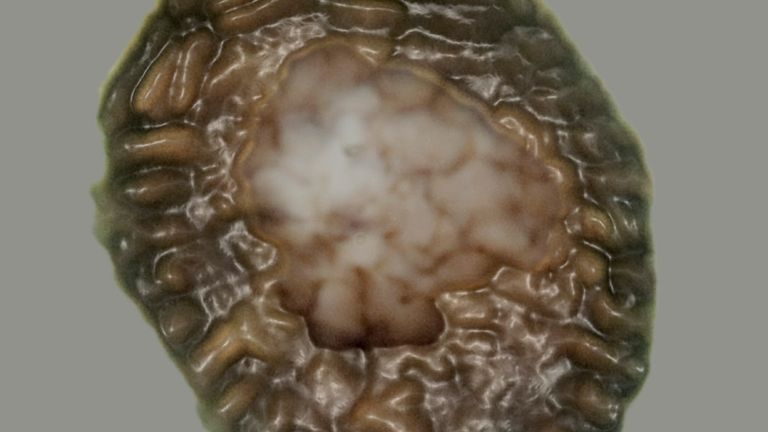A one billion-year-old fossil found in the highlands of Scotland suggests the earliest forms of life on Earth may have developed in freshwater lakes instead of the ocean.
Researchers from the University of Sheffield and Boston College in the US found a microfossil that contains two distinct cell types.
They say the find could be the earliest multicellular animal recorded.
The fossil, which has been named Bicellum Brasieri, shows an organism that is between a single cell and multicellular animal.
It gives new insight into the transition of single-celled organisms into multicellular animals.
The fossil was found at Loch Torridon in the northwest Scottish Highlands.
Scientists studied the fossil due to its exceptional preservation, allowing them to analyse it at a cellular and subcellular level.
One of the lead investigators from the University of Sheffield, Professor Charles Wellman, said: “The origins of complex multicellularity and the origin of animals are considered two of the most important events in the history of life on Earth, our discovery sheds new light on both of these.
“The discovery of this new fossil suggests to us that the evolution of multicellular animals had occurred at least one billion years ago and that early events prior to the evolution of animals may have occurred in freshwater like lakes rather than the ocean.”
Professor Paul Strother, from Boston College, added: “Biologists have speculated that the origin of animals included the incorporation and repurposing of prior genes that had evolved earlier in unicellular organisms.
“What we see in Bicellum is an example of such a genetic system, involving cell-cell adhesion and cell differentiation that may have been incorporated into the animal genome half-a-billion years later.”
The team hope to now examine the sandstones deposits in Scotland for fossils which could provide more insight into the evolution of multicellular organisms.
In 2014, scientists discovered ancient fish fossils which showed that sex originated in Scotland.
The Microbrachius dicki – a bony 8cm-long fish that lived in ancient lakes – is believed to be the first known animal to reproduce by having sex instead of by spawning.


